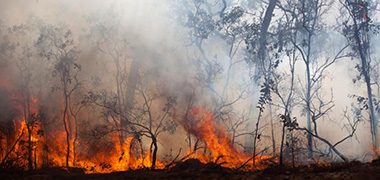
This role has a moderate level of AI exposure. AI can enhance efficiency for some tasks, but this job still relies on human skills and decision-making.
Explore all careersAn Oceanographer studies the ocean's properties and processes, conducting research to advance marine knowledge and promote conservation efforts.
Get qualified to work as an Oceanographer with a course recognised across Australia. Speak to a training provider to learn more.




Browse occupations related to Oceanographer



If you're interested in pursuing a career as an oceanographer, the Australian Capital Territory (ACT) offers a range of specialised courses perfect for those looking to deepen their knowledge and skills in this captivating field. Our Oceanographer courses in Australian Capital Territory encompass both Vocational Education and Training (VET) and Higher Education options, catering to experienced learners with prior qualifications. With three courses available, including esteemed offerings such as the Bachelor of Science (Earth Science), you can enhance your expertise while studying right in the heart of Australia's capital.
Among the advanced options, the Certificate IV in Sustainable Operations MSS40122 is particularly noteworthy. This course aims to equip learners with vital operational skills that are crucial for sustainability practices within marine and environmental contexts. Additionally, the Bachelor of Science (Environmental Science) program dives deep into ecological principles, perfect for those looking to tackle pressing environmental issues. By enrolling in these oceanographer courses, students are positioned to make impactful contributions to marine science and conservation.
The diverse skill set gained from these programs also aligns with various job roles in the marine sector. Graduates can explore careers such as Conservation Trainee, Marine Biologist, and Marine Scientist. Each of these professions plays a critical role in understanding and protecting our oceans, making them ideal for passionate eco-minded individuals. Opportunities like these are plentiful in Canberra, where the community values a sustainable future and environmental stewardship.
In addition to traditional oceanography roles, there are exciting job pathways such as Marine Environmental Consultant and Marine Researcher, both of which allow professionals to apply their scientific knowledge to real-world challenges. These roles not only involve research and analysis but also require a strong commitment to conserving marine ecosystems. If you're looking to make a difference, pursuing one of our oceanographer courses in the ACT could be your first step towards an impactful career.
The oceanographer profession is closely linked to essential fields of study such as Environment and Sustainability courses and marine conservation initiatives. For those considering roles like Fisheries Scientist or Marine Conservationist, these studies provide a robust foundation that is highly regarded by employers. By taking advantage of the well-structured oceanographer courses available in the Australian Capital Territory, you're setting yourself on a path to not only advance your career but also contribute significantly to the preservation of our vital marine environments.